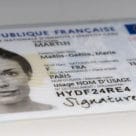EU agrees provisional legislative framework for European Digital Identity Wallet

The European Council and representatives of the European Parliament have reached provisional agreement on the legislative framework that will enable the issuance and usage of the EU’s European Digital Identity Wallet that will let EU citizens store their national ID card, driving licence and other digital credentials on their smartphone... More









